 W
WArthur Elphinstone, 6th Lord Balmerino and 5th Lord Cupar was a Scottish nobleman and Jacobite, or supporter of the claim of the exiled House of Stuart to the British throne.
 W
WJoseph "Blueskin" Blake was an 18th-century English highwayman and prison escapee.
 W
WMary Blandy was an eighteenth century English murderer. In 1751, she poisoned her father, Francis Blandy, with arsenic. She claimed that she thought the arsenic was a love potion that would make her father approve of her relationship with William Henry Cranstoun, an army officer and son of a Scottish nobleman.
 W
WStede Bonnet was an early eighteenth-century Barbadian pirate, sometimes called "The Gentleman Pirate" because he was a moderately wealthy land-owner before turning to a life of crime. Bonnet was born into a wealthy English family on the island of Barbados, and inherited the family estate after his father's death in 1694. In 1709, he married Mary Allamby, and engaged in some level of militia service. Because of marital problems, and despite his lack of sailing experience, Bonnet decided he should turn to piracy in the summer of 1717. He bought a sailing vessel, named it Revenge, and travelled with his paid crew along the Eastern Seaboard of what is now the United States, capturing other vessels and burning other Barbadian ships.
 W
WWilliam Brodie, often known by his title of Deacon Brodie, was a Scottish cabinet-maker, deacon of a trades guild, and Edinburgh city councillor, who maintained a secret life as a housebreaker, partly for the thrill, and partly to fund his gambling.
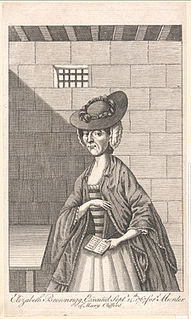 W
WElizabeth Brownrigg was an 18th-century English murderer. Her victim, Mary Clifford, was one of her domestic servants, who died from cumulative injuries and associated infected wounds. As a result of witness testimony and medical evidence at her trial, Brownrigg was hanged at Tyburn on 14 September 1767.
 W
WAdmiral John Byng was a Royal Navy officer who was court-martialled and executed by firing squad. After joining the navy at the age of thirteen, he participated at the Battle of Cape Passaro in 1718. Over the next thirty years he built up a reputation as a solid naval officer and received promotion to vice-admiral in 1747. He also served as Commodore-Governor of Newfoundland Colony in 1742, Commander-in-Chief, Leith, 1745 to 1746 and was a member of parliament from 1751 until his death.
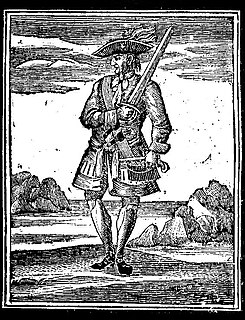 W
WJohn Rackham, commonly known as Calico Jack, was an English pirate captain operating in the Bahamas and in Cuba during the early 18th century. His nickname was derived from the calico clothing that he wore, while Jack is a nickname for "John".
 W
WArchibald Cameron of Lochiel was a doctor and a prominent leader in the Jacobite rising of 1745. On 7 June 1753, at Tower Hill, he was the last Jacobite to be executed for high treason.
 W
WRebekah Chamblit (c.1706–1733) lived in Boston, Massachusetts in the 18th century. She was tried and executed in 1733 for infanticide.
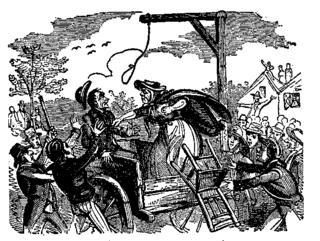 W
WHannah Dagoe was an Irish basket-woman, sentenced to death for burglary. On the day of her execution, 4 May 1763, in what The Newgate Calendar described as an "extraordinary and unprecedented scene" she struggled violently with the executioner, and with the noose about her neck, flung herself from the cart before the signal was given, dying instantly.
 W
WWilliam Dodd was an English Anglican clergyman and a man of letters. He lived extravagantly, and was nicknamed the "Macaroni Parson". He dabbled in forgery in an effort to clear his debts, and was caught and convicted. Despite a public campaign for a Royal pardon, in which he received the assistance of Samuel Johnson, he was hanged at Tyburn for forgery.
 W
WLaurence Shirley, 4th Earl Ferrers was an English nobleman, notable for being the last peer to be hanged, following his conviction for murdering his steward.
 W
WJames Field was a sailor and boxer in England in the 18th century who was hanged for robbery.
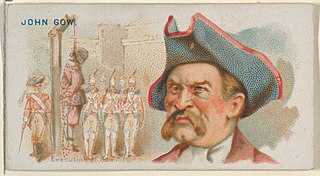 W
WJohn Gow was a notorious pirate whose short career was immortalised by Charles Johnson in the 1725 work The History and Lives of All the Most Notorious Pirates and Their Crews. Little is known of his life, except from an account by Daniel Defoe, which is often considered unreliable, the report on his execution, and an account by Mr. Alan Fea, descendant of his captor, published in 1912, almost two centuries after his death.
 W
WCornelius Grogan (1738?–1798), was a United Irishman.
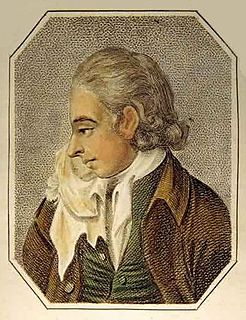 W
WJames Hackman, briefly Rector of Wiveton in Norfolk, was the man who murdered Martha Ray, singer and mistress of John Montagu, 4th Earl of Sandwich.
 W
WNathan Hale was an American soldier and spy for the Continental Army during the American Revolutionary War. He volunteered for an intelligence-gathering mission in New York City but was captured by the British and executed. Hale has long been considered an American hero and, in 1985, he was officially designated the state hero of Connecticut.
 W
WWilliam Gordon, 6th Viscount of Kenmure and Lord Lochinvar was a Scottish Jacobite.
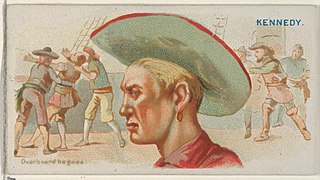 W
WWalter Kennedy was an English pirate who served as a crew member under Howell Davis and Bartholomew Roberts.
 W
WWilliam Boyd, 4th Earl of Kilmarnock, was a Scottish peer who joined the 1745 Jacobite Rising, was captured at Culloden and subsequently executed for treason on Tower Hill.
 W
WSimon Fraser, 11th Lord Lovat, nicknamed 'the Fox', was a Scottish Jacobite and Chief of Clan Fraser of Lovat, known for his feuding and changes of allegiance. In 1715, he had been a supporter of the House of Hanover, but in 1745 he changed sides and supported the Stuart claim on the crown of the United Kingdom. Lovat was among the Highlanders defeated at the Battle of Culloden and convicted of treason against the Crown, following which he was sentenced to death and subsequently beheaded.
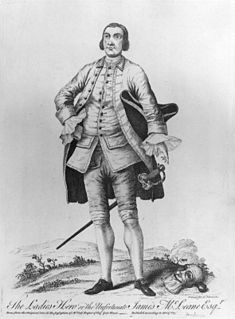 W
W"Captain" James Maclaine was a notorious highwayman with his accomplice William Plunkett. He was known as the "Gentleman Highwayman" as a result of his courteous behaviour during his robberies. He famously robbed Horace Walpole, and was eventually hanged at Tyburn. The film Plunkett & Macleane was based loosely on his exploits.
 W
WSarah Malcolm was a British murderer who was sketched by William Hogarth as she awaited execution for a multiple murder.
 W
WHenry Joy McCracken was an Irish Republican and industrialist from Belfast, Ireland. He was a founding member of the Society of the United Irishmen.
 W
WJohn Murphy was an Irish Roman Catholic priest remembered for his central role in the Irish Rebellion of 1798 in Wexford, sometimes known as the Wexford Rebellion. Murphy led the insurgents to one of their initial victories over a government militia at Oulart Hill, and in the following weeks became one of the rebellion's main leaders.
 W
WRichard Parker was an English sailor executed for his role as president of the so-called "Floating Republic", a naval mutiny in the Royal Navy which took place at the Nore between 12 May and 16 June 1797.
 W
WCharles Radclyffe, titular 5th Earl of Derwentwater, was one of the few English participants in the Risings of 1715 and 1745.
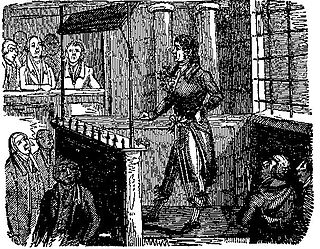 W
WJohn "Sixteen String Jack" Rann was an English criminal and highwayman during the mid-18th century. He was a prominent and colourful local figure renowned for his wit and charm. He later came to be known as "Sixteen String Jack" for the 16 various coloured strings he wore on the knees of his silk breeches among other eccentric costumes.
 W
WWilliam Wynne Ryland was an English engraver, who pioneered stipple engraving and was executed for forgery.
 W
WFather Nicholas Sheehy (1728–1766) was an 18th-century Irish Roman Catholic priest who was executed on charge of accessory to murder. Father Sheehy was a prominent and vocal opponent of the Penal Laws, which disenfranchised and persecuted Catholics in Ireland. His conviction is widely regarded as an act of judicial murder amongst supporters of Irish rebellion.
 W
WJack Sheppard, or "Honest Jack", was a notorious English thief and prison escapee of early 18th-century London. Born into a poor family, he was apprenticed as a carpenter but took to theft and burglary in 1723, with little more than a year of his training to complete. He was arrested and imprisoned five times in 1724 but escaped four times from prison, making him a notorious public figure, and wildly popular with the poorer classes. Ultimately, he was caught, convicted, and hanged at Tyburn, ending his brief criminal career after less than two years. The inability of the notorious "Thief-Taker General" Jonathan Wild to control Sheppard, and injuries suffered by Wild at the hands of Sheppard's colleague Joseph "Blueskin" Blake led to Wild's downfall.
 W
WJames Stewart of the Glen, also known as James of the Glens, was a Scotsman who was wrongfully accused and hanged as an accessory to the Appin Murder. The Appin Murder is a case in which Colin Roy Campbell was killed. Campbell was a government factor of estates forfeited by pro-Jacobite clans following the Rising of 1745.
 W
WCaptain Bartholomew Teeling was an Irish republican who was leader of the Irish forces during the Irish Rebellion of 1798 and who carried out an act of bravery during the Battle of Collooney. He was captured at the Battle of Ballinamuck and executed for treason.
 W
WRichard Turpin was an English highwayman whose exploits were romanticised following his execution in York for horse theft. Turpin may have followed his father's trade as a butcher early in his life but, by the early 1730s, he had joined a gang of deer thieves and, later, became a poacher, burglar, horse thief and killer. He is also known for a fictional 200-mile (320 km) overnight ride from London to York on his horse Black Bess, a story that was made famous by the Victorian novelist William Harrison Ainsworth almost 100 years after Turpin's death.
 W
WJonathan Wild, also spelled Wilde, was a London underworld figure notable for operating on both sides of the law, posing as a public-spirited crimefighter entitled the "Thief-Taker General". Wild simultaneously ran a significant criminal empire, and used his crime fighting role to remove rivals and launder the proceeds of his own crimes.